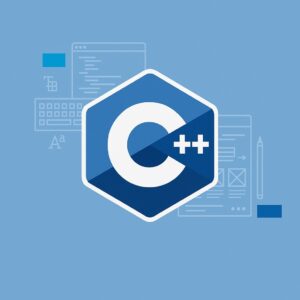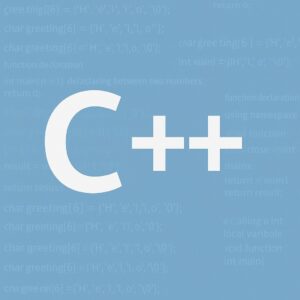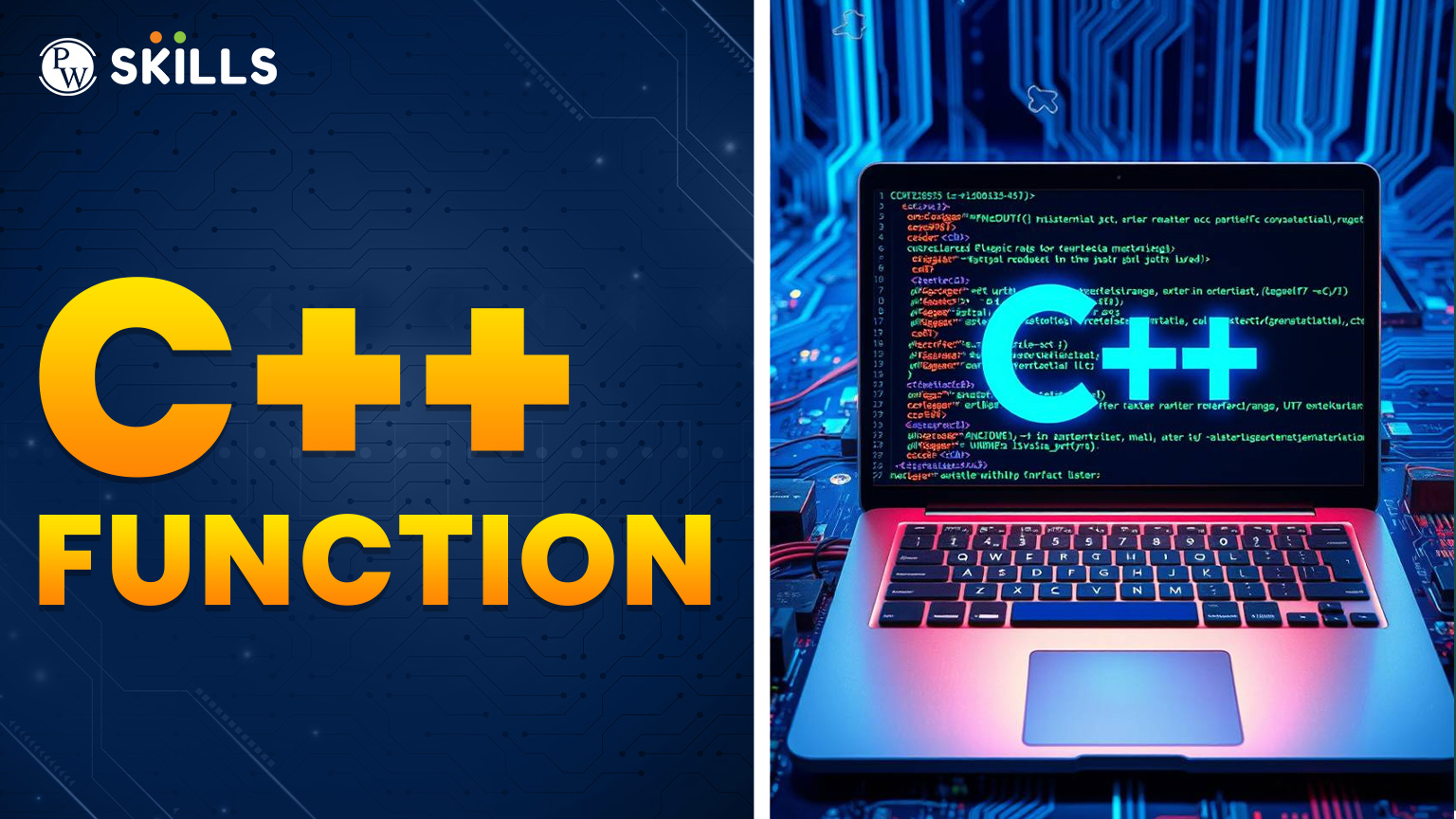Introducing C++ Function
C++ Functions in programming provide that smooth working and clean organizing structure for code. Whether designing an engine for a game or writing an inventory, efficiency of logic organization and code reusability is done properly only by knowing how to use functions. This guide gives a complete C++ Function explanation in theory, practice, and smart applications in real-world coding situations.

What is the C++ Function?
C++ Function is a named block of code performing a specific task. It is defined once, and thereafter called whenever needed. This actually avoids unnecessary repetition of the same code n times, hence making your program clean and easy to debug.
Here is an extremely simple C++ Function example:
#include<iostream>
using namespace std;
void greet() {
cout << “Hello, Vanita! Welcome to the world of functions! ” << endl;
}
int main(){
greet(); //function call
return 0;
}
The code defines a C++ Function greet and it is called through the main() function after defining it.
C++ Function Syntax explained
Standard C++ Function syntax looks like this:
return_type function_name(parameter_list) {
//code block
}
Let us break that down:
return_type: What the function gives back. It could be int, void, float, etc.
function_name: A custom name you give to the C++ Function.
parameter_list: Inputs you pass to the function. These are optional.
{…}: contains the code block running when the function is called.
Here’s an example of a function with parameters:
int add(int a,int b) {
return a+b;
}
To use it:
int main() {
cout << “Sum: ” << add(5, 7);
return 0;
}
You only leveraged the C++ Function syntax to do addition!
Types of C++ Function
In C++, there are many different ways to define C++ Function, according to one’s requirements:
- User-defined Functions – A function that is created or devised by the programmer.
- Library Functions – Like sqrt(), pow() in <cmath> library.
- Inline Functions – Defined with inline keyword, faster in execution.
- Recursive Functions – A C++ Function that calls itself.
- Friend Functions – Special functions that can access private members of a class.

Here’s a quick recursive C++ Function example:
int factorial(int n) {
if(n == 0)
return 1;
else
return n * factorial(n – 1);
}
This shows the validity in power of recursion using C++ Function!
Function Overloading in C++
Let us visit function overloading in C++, one of the most important specialties that come with polymorphism.
The function overloading in C++ means the creation of many functions with the same name but different types of parameters or numbers of parameters. The compiler chooses the correct form according to the call.
For example:
int multiply(int a, int b)
{
return a*b;
}
double multiply(double a, double b)
{
return a*b;
}
Thus, if you call multiply(2, 3) or multiply(2.5, 3.5) the corresponding C++ Function gets executed. This is function overloading in C++, lending flexibility and readability to your code.
Scope and Lifetime of a C++ Function
Understanding C++ Function scope and lifetime proves valuable in memory and variable management.
Local Scope
Such variables remain within a C++ Function.
Global Scope
Declared outside all functions, accessible everywhere.
Static Variables
Cardiovascular diseases: Retain their value between function calls.
Example:
void counter()
{
static int count=0;
count++;
cout<<” Called << count << ” times.”<<endl;
}
Hence counter() is called again and again, its count remains alive as it is called. That is the magic of static inside a C++ Function.
Returning Multiple Values from a C++ Function
A C++ Function itself can return only one value directly, but you can return multiple values by using:
- Pointers
- References
- Structures
- Tuples (in C++11 and onward)
Here is a simple method based on structure:
struct Result {
int sum;
int product;
};
Result calculate(int a, int b) {
Result res;
res.sum = a + b;
res.product = a * b;
return res;
}
You’ve now converted C++ Function into a machine of return to multi value!
Best Practices While Writing C++ Function
When prepared for interviews or real-life application projects, follow these golden rules:
- Meaningful and clear function name.
- Short functions must work on one task.
- Use const as much as possible to avoid incidental changes.
- Large data type should preferably be passed by reference.
- Return types must not be neglected; void isn’t always your friend.
Each C++ Function you create must do one job and do it well.
Why You Should Master C++ Function
Mastery in C++ Function makes one stand out both during interviews and in real-world applications. From the budding beginner writing his first calculator to the professional managing legacy systems, knowing how to use C++ Function, its syntax, and concepts like function overloading in C++ is key to success.
And guess what? One solid function could be all it takes to write your next massive program. Just keep practicing and trying new things-and soon writing a C++ Function will feel instinctive.
Also Read:
- C++ Pointers Explained for Beginners – Types, Usage & Advantages (2025 Insights)
- History Of C++ | Timeline (+Infographic), List Of Versions, & More
- Variables in C++: Declaration, Initialization, Rules, and Reference Variables (2025 Variables)
- Builder Pattern In C++ Design Patterns: Complete Explanation
PW Skills DSA C++ Course
Become proficient with C++ Function concepts to be able to tackle real-life problems with clean and optimized code. The DSA C++ Course from PW Skills offers world-class instruction, hands-on projects, and mock interviews to test your logic. Whether you’re placing your first step toward placements or building your path to the pro, this course is for you.
C++ Function FAQs
Can I pass a function as an argument in a C++ function?
Yes, you can pass function pointers to other C++ functions to improve modularity and flexibility of code.
Are inline functions the same as macros in C++?
No. Inline functions are type-safe and evaluated at compile time, while macros are preprocessor directives that can sometimes lead to obscure bugs.
How is function overloading in C++ different from method overriding?
Function overloading takes place in the same scope with different signatures, whereas overriding is dependent on inheritance, thus modifying a base class method in the derived class.


